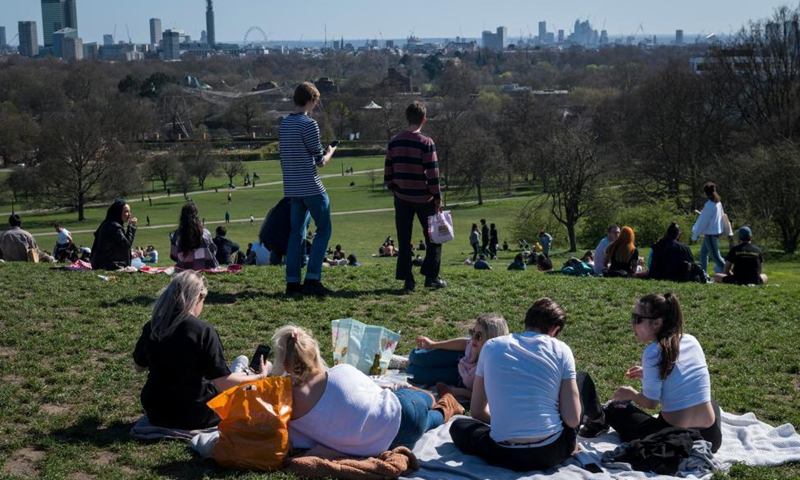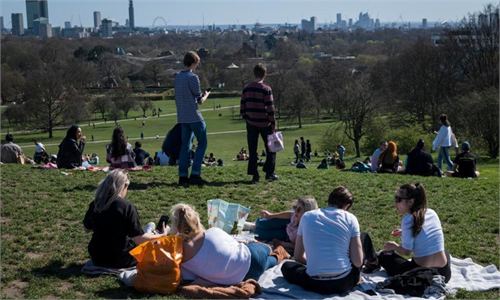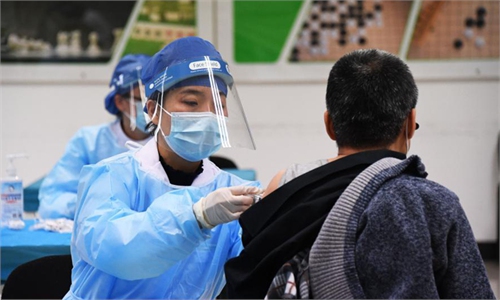
People enjoy the warm weather in London's Primrose Hill, in Britain, March 29, 2021. British Prime Minister Boris Johnson on Monday urged the public to remain cautious as outdoor get-togethers and sports resumed in England. As the next step of the British government's "roadmap" exiting the lockdown, two households or groups of up to six are now allowed to meet outside, including in private gardens, and outdoor team sports are reopening from Monday. Photo: Xinhua
The COVID-19 vaccine passport scheme that the UK government is planning to introduce is seen by some Chinese experts as an exploratory move under the UK's urgent need to get society back to normal and boost the country's economy in the post-pandemic era, which could provide a reference for China to encourage vaccination.
But some experts raised concerns that the scheme is unfair and infection risks in large-scale venues still exist despite vaccination.
The UK is planning several trials of a domestic vaccine passport to test its use in different venues, such as football cup finals. The initiative aims to facilitate the reopening of the economy, reported the Guardian.
The system will enable people to use a digital or paper certificate to gain access to mass-participation events without the need for social distancing and other precautions.
The passport will serve as a health certificate that includes information on whether someone has received a vaccine, a recent negative test, or acquired natural immunity after a positive test in the last six months, reported the Guardian.
Tao Lina, a Shanghai-based medical expert on vaccines, sees the plan as an exploratory move under the UK's urgent need to restore social order in the post-pandemic era.
He noted that China could take UK's experience as a reference and establish a "white list" of people who have completed vaccination, which would allow them to attend all kinds of social gatherings with simplified protective measures. "By adopting a 'white list,' more people will be motivated to get COVID-19 vaccine shots, which is conducive to building herd immunity," he said.
China reopened its post-epidemic economy with the health code system strictly implemented in public places, including shopping malls, cinemas and parks. But large-scale activities, such as music concerts and sports games, are still restricted.
Though the UK government has not made a final decision on the scheme, the scheme has encountered opposition from some in the British public and some members of parliament. More than 70 MPs signed a pledge against the system as it would be "divisive and discriminatory," according to reports.
Yang Zhanqiu, deputy director of the pathogen biology department at Wuhan University, held similar views, saying the system would be unfair to those who have not been vaccinated.
Yang told the Global Times on Monday that it is irresponsible for the government to conduct tests on its own people given there is still a risk of infection even if a person is fully vaccinated, as there is no absolute guarantee that the vaccines can fend off the virus completely.
The number of COVID-19 vaccine doses administered per 100 people in the UK as of Saturday is 54, ranking fourth in the world, according to Our World in Data.


